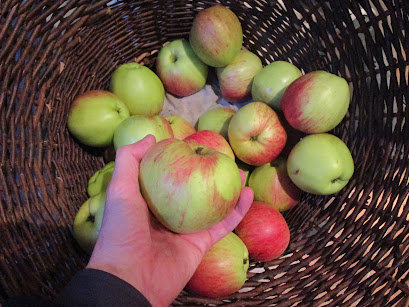
The reason Dr Freud gave his theories names drawn from Greek myth was that he saw beneath the familiar founding stories of European literature and culture a vast, dark ocean of seething emotion and trauma, and he was right. Identities are built on stories, and they affect how we respond to the events that come our way and the circumstances in which we find ourselves. Christianity, of course, involves meditating on, and identifying with, a story, internalising it until it shapes the whole way you approach your life.
Current political events in the USA are bent around that country's founding myth. I don't mean the narrative of the Pilgrim Fathers, who seem to have dropped out of public consciousness, possibly because the message of religious liberty doesn't mean much these days; but rather the other one, the idea of the pioneer who carves out a homestead from the wilderness and then defends it and his family from anyone who might take it away. The country is divided between those who identify with this story, who see it written into their own lives, and those who don't, though I wonder whether they know they don't - whether they recognise it as a kind of ideology, or not.
Modern conservatism has lately exchanged the story it used to tell itself for another, like the United States. The belief in organic society, of the slow, progressive growth of institutions and laws which embody the spirit of groups of people, has been replaced by hard-line meritocracy, expressed, I noticed the other day, beautifully by Donald Trump fils at the Republican congress: 'you can have the life you want to have - one with a great job, a beautiful home, and a perfect family. You can have it'. Ultimately you get what you deserve, and you deserve what you get. Hardly anyone articulates this or thinks it in its hardest form, but it shapes the way they think.
Then, there is our Prime Minister, who the same day decided 'it's time we stopped our cringing embarrassment about our history, about our traditions, and about our culture, and we stopped this general fight [sic] of self-recrimination and wetness'. I am slightly younger than he is, but we were probably both brought up on the same Ladybird Books and illustrated tales of unquestioning British historical derring-do and achievement on Blue Peter. I don't think I'm embarrassed about anything. I see no good reason to be very embarrassed, or proud to come to that, about events I took no part in. For some centuries the English (and dragging along with them the Scots, Welsh and Irish) were the most effective pirates and thieves in the world, and anyone who lives in the UK now benefits from their efforts, some more than others. I'm not the one who doesn't want to talk about that. Who's embarrassed?
Finally, not quite a founding story, but certainly a political myth, is the idea that whichever side in society you belong to, you can win. Perhaps political systems like the British or American encourage that idea especially. Whether you buy into your society's mythology or are alienated by it, the people who feel differently to you aren't just going to go away, and therefore they can't simply be defeated. Losing an election doesn't mean they vanish. Change means they have to be dealt with, and new, more inclusive and convincing stories, have to be told.











































